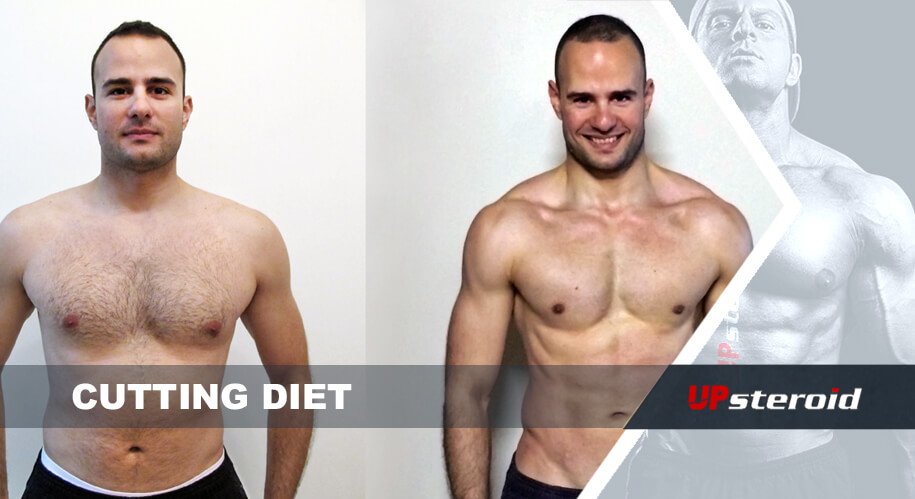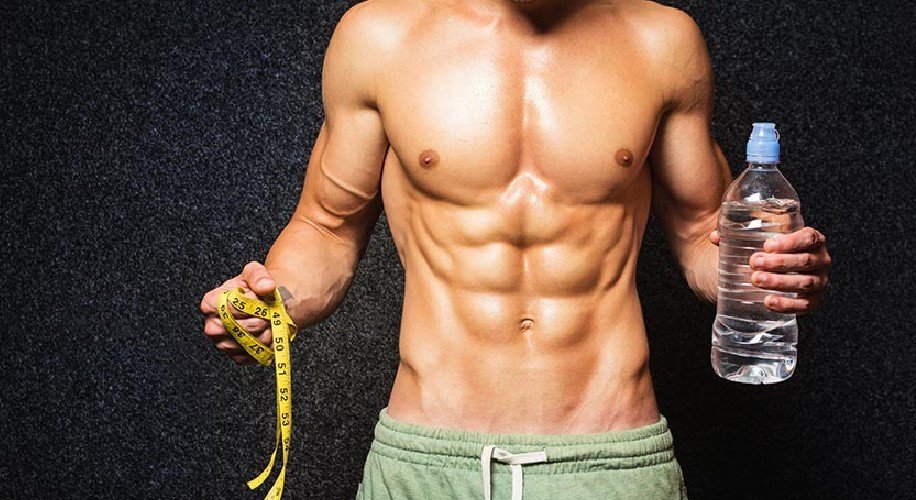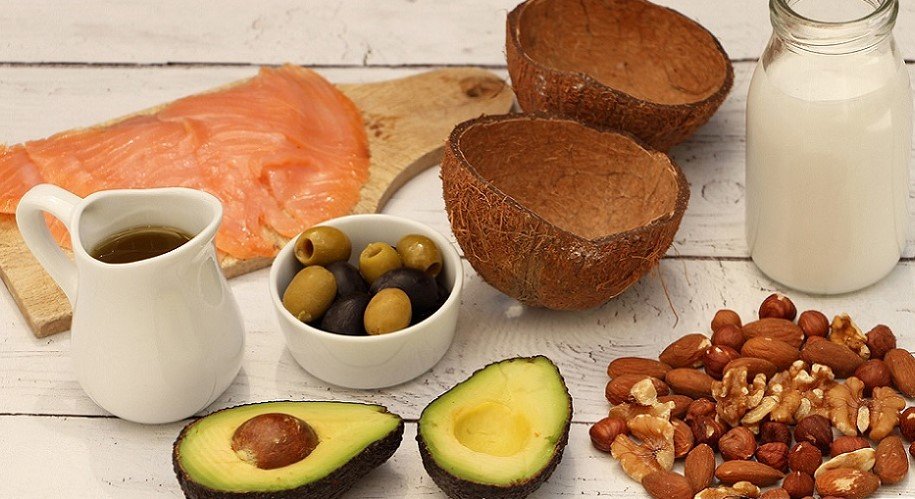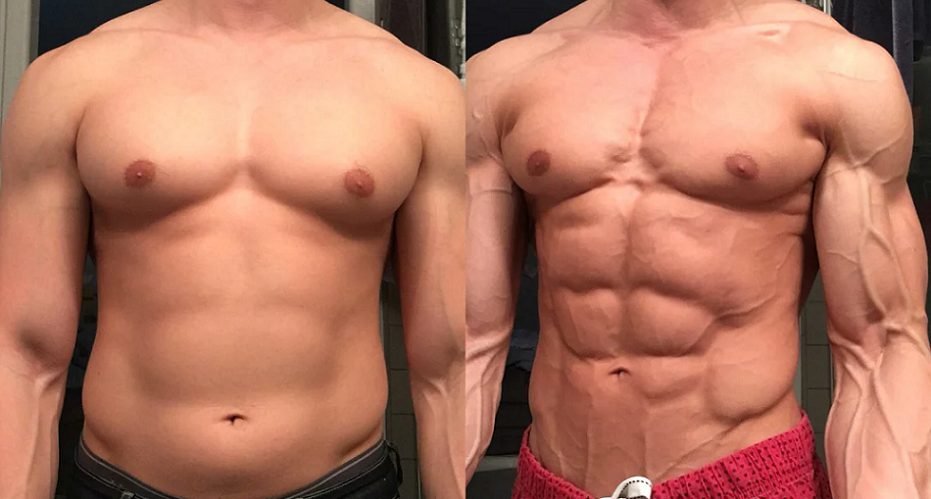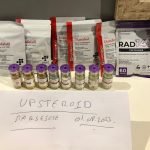Are you a bit heavy and desperately want to lose weight?
Are you new to bodybuilding and not sure how to get a body composition you can be proud of?
In this article, we are going to delve into the topic that could change your life for the better.
We explain what a weight loss diet in bodybuilding in the simplest way possible while highlighting a sample weight loss diet plan to give you a good idea of what is expected of you when you decide to start a weight loss program .
But that's not all, we also tell you when you should start a reduction diet, we tell you the expected results and, finally, we give you useful tips for your reduction diet.
There's a lot to look at, so without further ado, let's start by outlining a weight loss diet.
What is a Bodybuilding Weight Loss Diet?
As a bodybuilder, you have three big goals to achieve. In no particular order, the first is to improve your muscle mass (bulk), the second is to increase your athletic performance and the third is to burn excess body fat (cut).
The third object of bodybuilding is also known as “Cutting”. It's about shedding excess body fat and losing weight through a coordinated process that incorporates a workout program and a weight loss diet.
In summary, a bodybuilding weight loss diet is a nutrition plan designed to promote fat burning and weight loss while encouraging muscle mass growth to achieve a lean and average body composition.
As part of a typical weight-loss diet, calorie consumption is reduced and daily food intake is regulated to promote high-intensity training (HIIT) for muscle mass gain. Indeed, you can lose body fat and gain muscle mass.
However, on a weight loss program, your main goal is to burn fat and lose weight while maintaining your muscle gains. But to maintain your muscle gains, you need to train hard to build muscle mass in the first place, even if you follow your weight loss diet. fat reduction.
What is the best diet plan to lose weight?
The best weight loss diet is the one that works best for you. The truth is, there's no written rule for what type of foods you should include in your cutting diet, simply because we all have our food preferences.
It should also be noted that some of us suffer from food allergies that make it impossible for everyone to eat the same type of foods to burn fat and lose weight.
However, there are basic weight loss diet principles that anyone can adopt today to achieve more or less the same weight loss results.
The first thing you need to do to craft the best diet plan for you is to understand your macronutrient needs.
As you may already know, the three macronutrients or macros are protein, fat, and carbohydrate.
Your daily protein intake
Your protein intake is essential for you to lose fat and weight. You must therefore include sufficient amounts of animal and vegetable proteins in your weight loss program.
Protein is known to boost metabolism, promote satiety, and maintain lean skeletal muscle mass. When you're on a weight loss diet, you need to eat more protein than other macros.
You actually eat more protein when you're dieting for a weight loss than if you were training to gain or maintain muscle mass. If you exercise regularly, your protein needs will increase even if you receive fewer calories.
According to several studies, protein intake for a weight loss diet should be between 1 and 1,4 grams (g) per pound (lb) of body weight or between 2,2 and 3,0 g per kilogram (kg ).
This daily protein requirement is also sufficient to allow you to maintain your muscle mass gains. So, if you weigh 200 lbs (90 kg), for example, your daily protein intake should be between 200 and 280 grams.
Your daily fat intake
It is important to note that your fat intake is crucial for the production of muscle mass building hormones in your body, such as IGF-1 and testosterone.
Therefore, if you need to regulate your intake of healthy fats, you should be careful not to consume too little of them, as this could affect your testosterone production.
According to studies, your daily fat intake should be between 20% and 30% of your total daily calorie intake. Note that one gram of fat equals approximately 9 calories.
Therefore, assuming your daily calorie intake is 2 calories, your fat consumption per day should be between 000 and 44 grams.
With a HIIT program, you can consume 44 grams of fat per day while increasing your carb intake to make up for the fat calorie deficit.
Your daily carbohydrate intake
If you want to preserve your muscle gains while following a fat reduction diet, you need to take your carbohydrate (carbohydrate) intake seriously.
By consuming sufficient amounts of carbs, your body will use carbs as energy fuel during your regular workouts instead of turning to protein sources for energy, causing you to lose muscle mass. .
Also, your performance during your workouts is enhanced when you consume sufficient amounts of carbohydrates.
Therefore, the amount of carbohydrates you consume daily should represent the number of calories remaining after you deduct calories from daily fat and protein intake in your weight loss diet.
To use the example in this post, this amount should be between 0,9 and 2,2 grams per pound of body weight or about 2 to 5 g/kg of body weight.
Note again that one gram of fat equals 9 calories, while one gram of carbs and protein equals 4 calories respectively.
If you want to calculate your daily carbohydrate intake, you need to subtract the daily fat and protein needs from your total daily calorie intake, then divide the remainder by a factor of 4.
For example, if you weigh 200 lbs (90 kg) and your total daily calorie intake for your reduction diet is around 2 kcal, your fat intake will be 000 g and your protein intake will be 60 g. The remaining calories will therefore be 150 kcal.
The remaining calories are 860 kcal, or about 215 g, which is your daily carbohydrate intake.
When should you start losing weight?
Typically, a fat reduction diet can last 2-4 months, but it depends on your weight and body fat index before you started the diet.
However, when it comes to timing your weight loss regimen, it's best to establish your program before a competitive bodybuilding event or competition.
So, if you want to prepare for an event, you should start your reduction diet 2-4 months before the start of the event or competition in question.
Expected results of a weight loss diet for bodybuilders
You should expect a steady weight loss of around 1 pound (Ib) or 0,45 kg per week from your weight loss diet. This represents a loss of 0,5% to 1% of your body weight each week.
It is important to note that gradual weight loss is preferable to a rapid drop in body weight, as you may lose your skeletal muscle mass gains in the process.
Thus, if a significant caloric deficit can contribute to accelerating the fat burning and weight loss, it can be detrimental to mass gain.
Useful tips for fat reduction diet
Here are some tips to follow when dieting to ensure steady fat loss:
- Eat more fiber-rich meals:
If you're in a calorie deficit, eating carbs like fiber-rich, non-starchy vegetables will help you feel full longer. - Drink plenty of water: By staying hydrated at all times, you can better control your hunger and speed up your metabolism, even if only temporarily.
- Meal prep helps: Plan your meals in advance to save time, avoid falling into the diet trap, and steer clear of high-calorie fast foods.
- Don't drink your carbs: Sugary drinks like sports drinks and soda won't fill you up as much as whole, high-fiber meals, and they can even make your hunger pangs worse.
- Consider cardio: Adding aerobic activity, especially high-intensity cardio activity, to a weight training session will help you lose more fat.
Summary
The goal of dieting is to reduce body fat while maintaining muscle mass at an optimal level.
The amount of calories, protein, fat and carbohydrates you should eat on a weight loss diet weight loss for bodybuilding is determined by your weight and lifestyle.
It is recommended to follow a weight loss diet only for a few months before a competition and to accompany it with a bodybuilding program.
Always consult your trainer and/or doctor to determine if a weight loss diet for bodybuilding is right for you. You can learn more about dieting by talking to an IFBB professional here.

